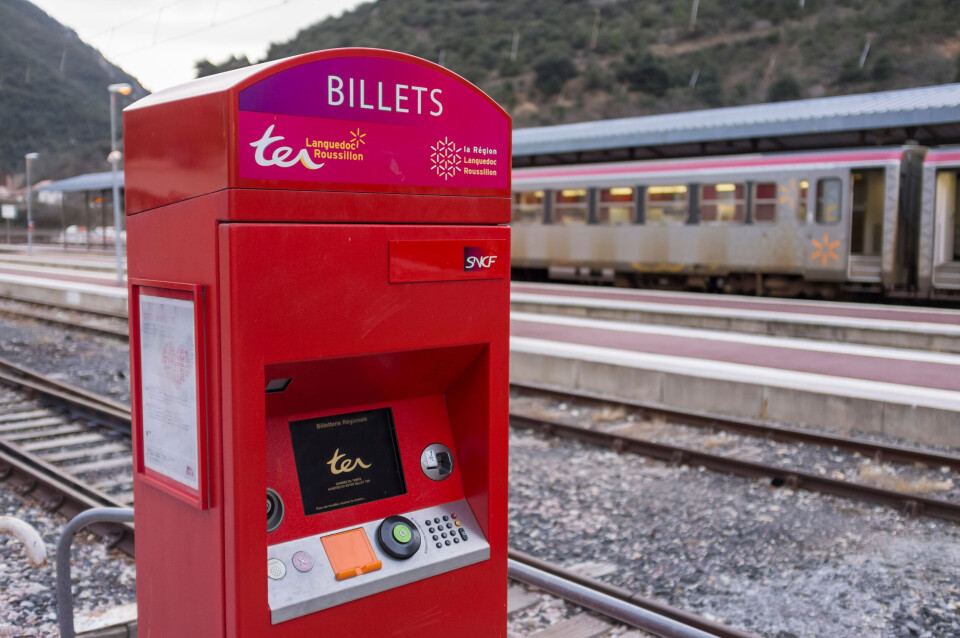-
La Voie Bleue: European Cycle Route of the Year is in France
700km bike path linking Luxembourg and Lyon has been crowned winner of the 2026 title
-
Before and after: Garonne river floods in south-west France
Satellite images show extent of flooding from back-to-back storms in February
-
Home insurance increases expected in France after floods
Compensation costs for the recent storms and flooding across the west and south-west is estimated to be in the billions of euros
‘Big ambition, small lines’: France to invest in rural train services
The prime minister said the country is spending money on smaller, rural routes because ‘all areas deserved to be served by high-quality train networks’

The French prime minister has committed to regenerating 9,200km of smaller train lines across France, with funding from the government as well as from the impacted regions themselves.
Jean Castex confirmed the plans in front of the Saint-Dié station in Vosges as he inaugurated the link between Epinal and Saint-Dié-des-Vosges (Grand Est), which had been closed for three months due to poor repair, on December 12.
He said: “This is an investment in the future. It’s really happening.”
Mr Castex said he was a “great lover of trains and all things railway” and lamented the decades in which the “state believed that these rural lines were too expensive to run”.
He said that a lack of investment in the railways in France had caused trains to slow down, which in turn reduces passenger numbers and damages the industry.
He said: “This is a major movement. We are doing this everywhere because we really believe in it. We are spending money on the railways, this is a real return to investment.
“What we are doing in Saint-Dié wouldn’t make sense if we didn’t do it everywhere in France, with the close cooperation of each region.
“This is about ‘small lines’ providing local access, and it is essential that we do it everywhere.
“We are consolidating a collective engagement made by the head of state. What we are doing here is not a one-off, symbolic operation. We will do it everywhere in France.
“After Grand Est, I will be in Occitanie to sign a ‘small lines’ protocol in that region.”
Mr Castex added that funding would go into regenerating, repairing and even reopening old stations which have perhaps been closed due to lack of use.
He said that a total of six ‘small lines’ protocols have already been agreed with different French regions, but did not give details of the four which follow those made in Grand Est and Occitanie.
Mr Castex also said that in order to enable good infrastructure across the country, investment in the railway could also see new roads being built to improve access to and the service provided by the train network.
“Yes, we need roads, because we are managing another voluntary transition towards electric vehicles,” he said. “Once we no longer have just petrol or hybrid cars, roads will also become positive” in terms of their contribution to the fight against climate change. “We must have a global vision.”
“We must have big ambitions for our smaller lines,” Mr Castex wrote on Twitter. “All areas deserve to be served by high-quality train networks.”
L'engagement d'@EmmanuelMacron est tenu : la ligne Épinal - Saint-Dié-des-Vosges rouvre aujourd'hui aux voyageurs !
— Jean Castex (@JeanCASTEX) December 12, 2021
Oui, nous devons avoir de grandes ambitions pour nos petites lignes.
Tous les territoires méritent d'être desservis par des réseaux ferroviaires performants. pic.twitter.com/bQYLWPAbTV
Mr Castex made the announcement at Saint-Dié partly because the link between the station and Arques, near Epinal, had been closed since December 2018 due to safety fears. The rails were considered obsolete, and there were fears that the two tunnels could collapse.
At the time, President Emmanuel Macron pledged to replace the service, and the project was extended nationally.
The €21million cost of the Saint-Dié project was partly covered by the state (40%), with the rest (60%) covered by the Grand Est region. This shared funding model will apply to all new investments in lines.
Saint-Dié is the first to benefit from the plan, and is set to receive extra services and new direct links with Strasbourg in future. It will also be opened to the wider market.
The prime minister has also said that he has given the ‘green light’ to an experimental funding plan, which will allow the Grand Est region to pay less to SNCF Réseau for the running of its TER trains, in exchange for more of its own investment in the network.
Related articles
Explore France by rail: Tour of the country's steam trains
Ferries, planes, trains: 10 updates for travel to and within France
40 years of TGV: the train that changed the face of French rail travel
Delayed or cancelled trains in France: How to get compensation
























